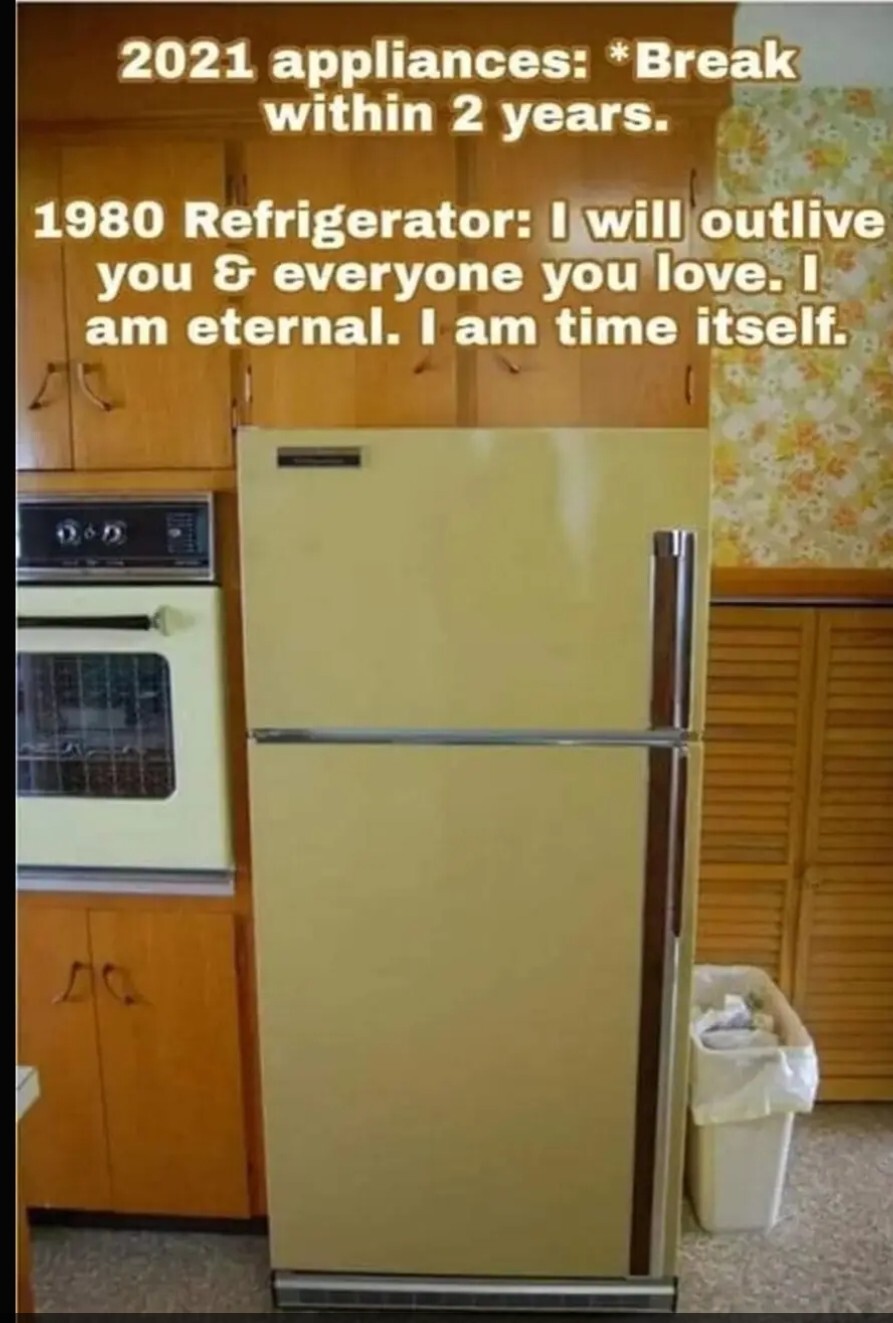I mean most things can, it just isn’t profitable…
Planned Obsolescence, baby!
That said, we might be able to make industrial scale recycling an economically efficient activity if we build more durable goods with a longer lifecycle and limit the availability of new territory to strip mine and abandon.
So much of our “cheap” access to minerals and fossil fuels boils down to valuing unimproved real estate as at zero dollars and ignoring the enormous waste produced during the extraction process. Properly accounting for the destruction of undeveloped real estate and the emissions/waste created during industrial processing could dramatically improve how much waste we produce and - consequently - how long our durable goods last.
After ~20-30 years, rubber gaskets and seals and cable insulation start failing. Plastic becomes brittle, especially if exposed to the sun. How do they solve this problem?
Modularity of construction, so that rubber components can be replaced without scrapping the whole vehicle. Reducing reliance on plastic parts, or improving the ease and quality of plastic recycling, so that we can fix the exterior components without sacrificing the chassis and core parts.

Will use 4x as much electricity though, ugh.
https://www.cleanenergyresourceteams.org/your-old-refrigerator-energy-hog
Anyone know of any refrigerators today that are as durable as older ones and have today’s efficiencies, but without the smart features and other junk?
Average refrigerator today still lasts 13 years though, and while they’re made cheaply they also are cheaper (at least as a portion percentage of the average paycheck).
https://reviewed.usatoday.com/dishwashers/features/ask-the-experts-why-dont-new-home-appliances-last
I’ve heard that in the US fridges are generally different, with stuff like active fans and nonsense like that. Is that true?
Because every fridge I’ve seen in Europe is mechanically extremely basic and I’ve literally never seen or even heard of one breaking. In my experience fridges are one of the only things that have remained phenomenally simple in design and extremely unlikely to break.
If someone told me their fridge broke, I’d genuinely assume they were lying. That’s how reliable they are.
Well there are evaporator fans in modern refrigerators in the US. They serve an important role though helping with defrosting, improving cooling efficiency, and evenness of cooling throughout the fridge.
https://refrigeratorguide.net/maximize-cooling-efficiency-best-refrigerator-evaporator/
Usually only very small refrigerators are without them now.
It is another point of failure though, but should be pretty easily repairable. I mean it’ll still be able to cool without the fan, but it’ll be running much more to try and compensate and keep things cool though.
If you know the YouTube channel technology connections, here’s a fun video of him messing around with a fanless style refrigerator:




